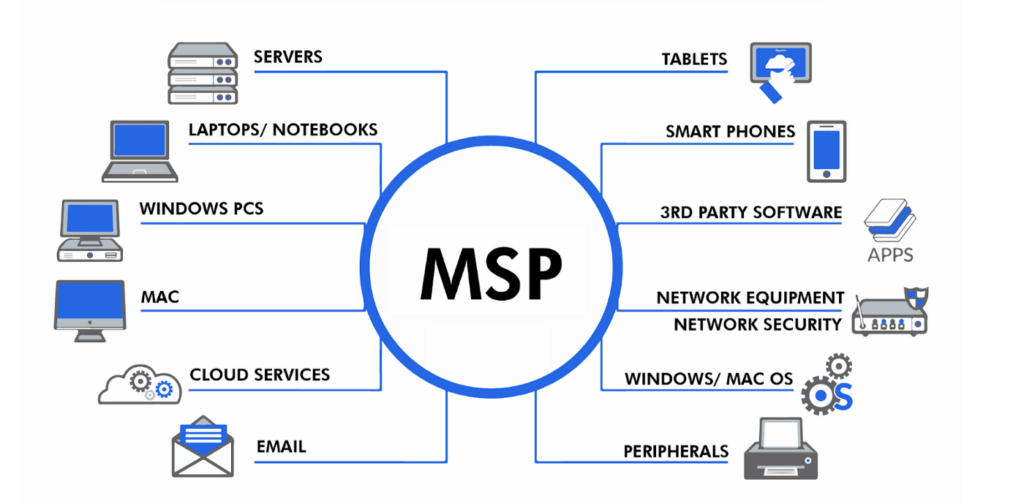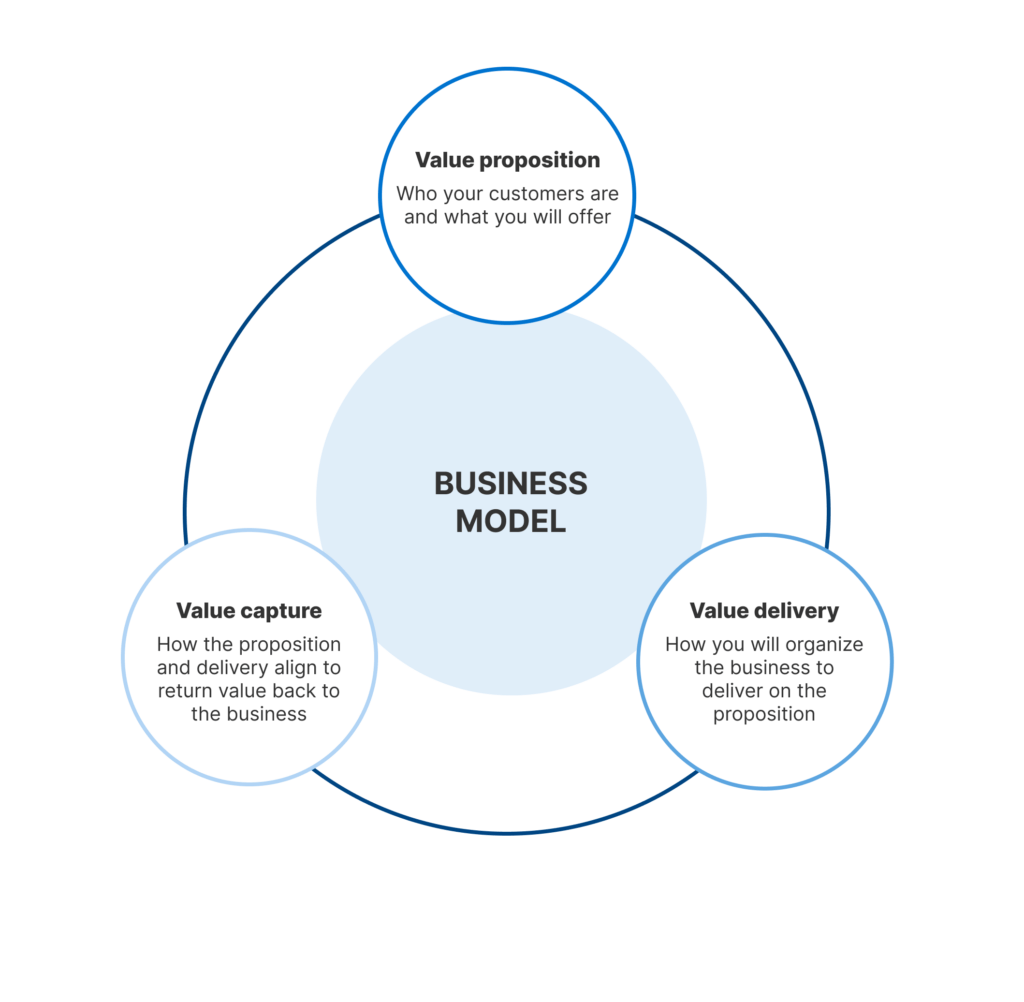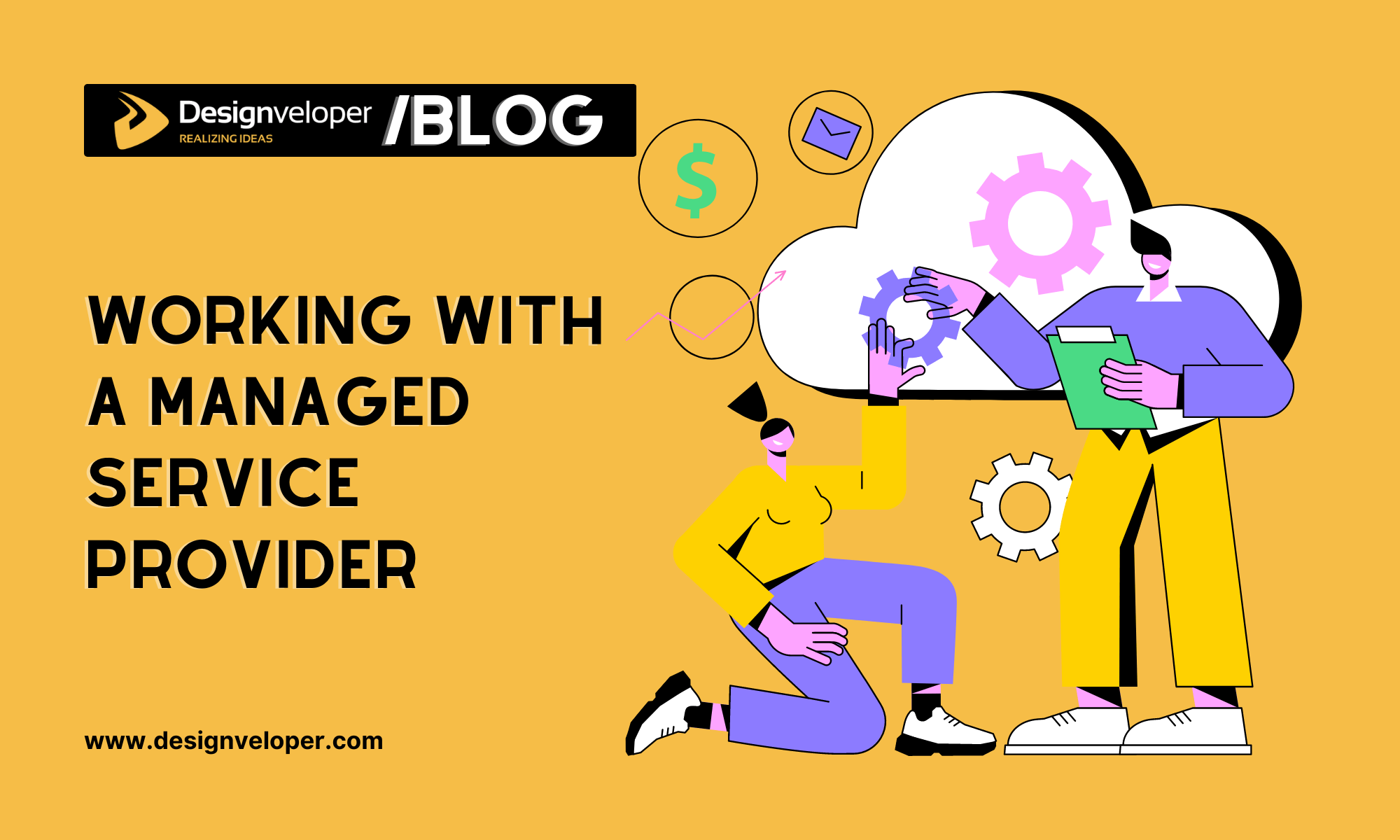
Outsourcing your company’s IT operations to a Managed Service Provider (MSP) can offer numerous benefits, from cutting costs to having 24/7 expert support. However, choosing the right MSP and working effectively with them involves more than simply signing a contract.

10 Things to Know About Working With a Managed Service Provider
This guide aims to shed light on these vital aspects by offering ten key things you should know about working with an MSP, ensuring you make the most of this collaborative relationship.
1. Understanding Their Role

The role of a managed service provider (MSP) should not be underestimated. They become the IT department for your company, managing, monitoring, and solving any IT-related problems that arise. The purpose of MSPs is to provide SMEs with resources at par with corporations.
2. Prioritizing Your Business Model

When choosing a managed service provider, you need to prioritize your business model. The aim should be to partner with an MSP who understands and aligns with your business requirements and strategies, particularly if your operation is reliant on online transactions.
3. MSP Automation Strategies: Are They Included?
Automation is an integral part of MSP operations. Effective managed service providers deploy MSP automation strategies to enhance consistency and speed, resulting in cost savings. By automating routine tasks, the provider can concentrate more on dealing with complex issues.
4. Background Checks Are Essential
Running background checks on any potential managed service provider is crucial. You should review their track record and credentials before entrusting them with your business’s IT tasks. This analysis ensures that the MSP can effectively meet your company’s needs and standards.
5. How Up-to-Date Is Their Tech?
Checking the relevance of an MSP’s technology is key. Since technology evolves rapidly, it’s essential that your chosen MSP keeps up and leverages the most advanced approaches and tools. They should provide solutions that guarantee maximum security and efficiency.
6. The Magic Word: Proactivity
One crucial trait of a successful managed service provider is proactivity. Efficient MSPs don’t just reactively address IT problems but actively work to prevent them from happening in the first place. They achieve this through strategic planning, ensuring uninterrupted business operations.
7. The Importance of Scalability
Scalability is a vital aspect to consider when hiring a managed service provider. As your business grows, so will your IT needs. An effective MSP should be able to effortlessly scale its services to cater to your expanding requirements while maintaining efficiency and quality.
8. Efficient Communication Matters

A proficiently managed service provider maintains transparent and regular communication, keeping you updated about system maintenance and addressing any concerns promptly. This open dialogue helps foster a trust-based relationship between your business and the provider.
9. Cost-Effectiveness Analysis Before Commitment
Before committing to a managed service provider, thoroughly analyze the cost-effectiveness of their services. Outsourcing IT tasks can be more affordable than an in-house team but remember to consider hidden costs such as staff training or unexpected system downtimes.
10. Always Have An Exit Strategy In Place
It’s crucial to have an exit strategy in place before entering an agreement with a managed service provider because you never know. Contracts can be binding for years, so it’s important to ensure there’s a feasible exit route should the relationship not work out as anticipated.
FURTHER READING: |
1. 10 Lifestyle Startup Ideas for 2025 |
2. Zoom vs Skype: How Zoom Defeat Skype in Video Conferencing |
3. How to Create Startup Funding Pitch Deck? |
In Conclusion
In conclusion, understanding these ten key points allows your business to leverage the wide variety of benefits that a managed service provider brings effectively. Now that you’re armed with this crucial knowledge, take the time to reassess your current or potential MSP setup.






Read more topics





























































